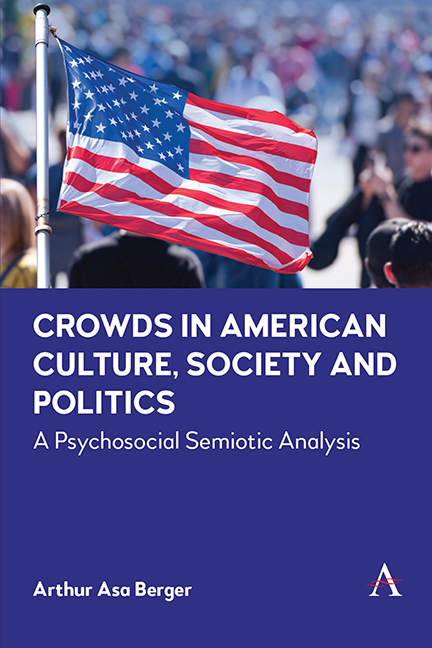6 - Crowds And American National Character
Published online by Cambridge University Press: 28 February 2024
Summary
Scholars and writers often speculate on American exceptionalism, the notion that America differs from other countries and that because of our history, spiritual values, economic wealth, and military power, we have a special obligation to lead the world in many areas.
On September 25, 2015, David Brooks, a columnist for The New York Times, had a column titled “The American Idea,” which starts off as follows:
America was settled, founded and built by people who believed they were doing something exceptional. Other nations were defined by their history, but America was defined by its future, by the people who weren't yet here and by the greatness that hadn't yet been achieved.
Later in the column, he argues that the conservative Republican politicians who talk about American exceptionalism are destroying the concept by looking backwards to an imagined America, an America that was not multicultural and mixed race and that was not full of immigrants from Europe, Asia, and Africa and everyplace else.
The image of America in the minds of the Republican politicians Brooks was writing about is of a fantasied America made up primarily of White Anglo-Saxon Protestants (WASPS) living in farms and small towns and not in an America with huge cities full of people from many other countries with many skin colors and religions. It turns out that over sixty percent of Americans live in cities and only seven percent of Americans live on farms.
Anyone who has traveled to countries in Europe, Asia, and South America can tell you people in the various countries in these continents are all different from one another in many ways, such as their skin color, body shapes, the languages they speak, the food they eat, the clothes they wear, the way they have sex, their racial makeup, and the religions they practice.
The term we use for the differences we find in countries as far as personality is concerned is national character. What national character suggests is that where we are born and grow up plays an important role in the way we think and behave.
Nations differ from one another in various ways, and parts or regions of countries differ from other parts of the same country in important ways.
- Type
- Chapter
- Information
- Crowds in American Culture, Society and PoliticsA Psychosocial Semiotic Analysis, pp. 61 - 72Publisher: Anthem PressPrint publication year: 2023

